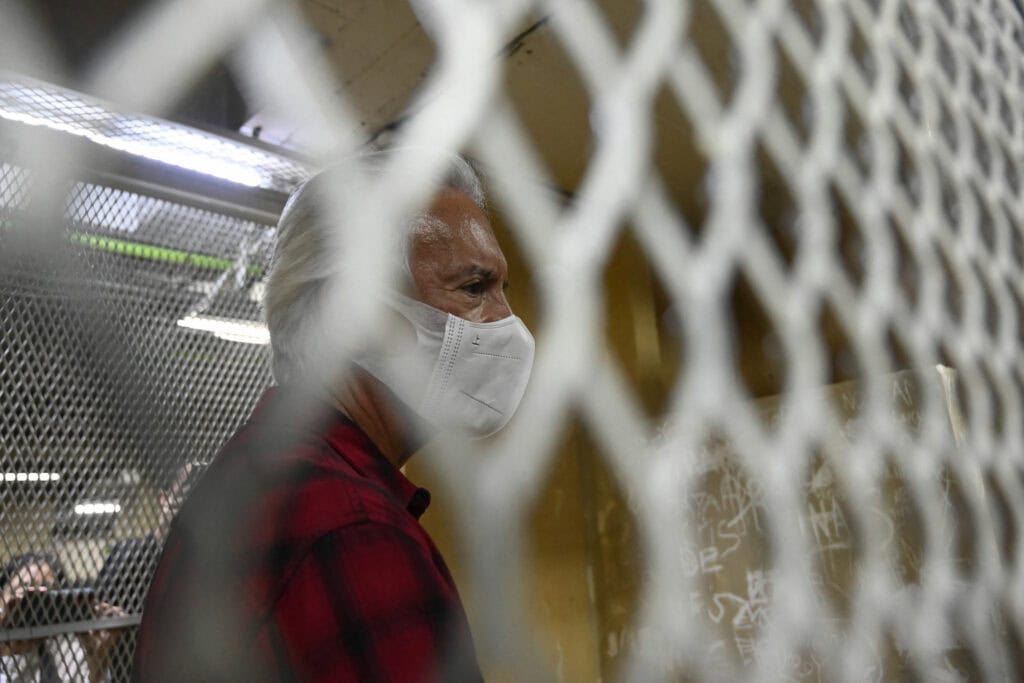Eight hundred days after the arrest of journalist Jose Rubén Zamora Marroquín, the organisations ARTICLE 19 Mexico and Central America, Amnesty International, Committee to Protect Journalists (CPJ), Free Press Unlimited, Freedom House, Fundación para la Libertad de Prensa (FLIP), Fundamedios, Protection International Mesoamérica, and Reporters Without Borders (RSF) and the IFEX-ALC network reaffirm the urgent demand for the prompt and unconditional release of the journalist and founder of elPeriódico.
In particular, the undersigned demand that the authorities of the Public Prosecutor’s Office and the Judiciary proceed fairly and impartially, guaranteeing his rights at all times. We demand that the Guatemalan government implements a strategy to remedy the damage done to the journalist, his family, and Guatemalan society as a result of the judicial harassment against him for exercising his freedom of expression and the press.
The editorial president and founder of the defunct media elPeriódico, Jose Rubén Zamora, has been in detention since July 29, 2022, after he was accused of the alleged crime of money laundering. The accusations, his detention, and the judicial proceedings have been carried out with irregularities and perpetrated arbitrarily by state officials, who are currently on the Engel List of the United States for violating the rule of law.
On June 14, 2023, a court found Zamora guilty. It sentenced him to six years in prison for money laundering, although the Special Prosecutor’s Office Against Impunity (FECI) – led by Rafael Curruchiche – had asked for forty years in prison. However, in October 2023, the Court of Appeals annulled this sentence and ordered a retrial. In September of this year, the Supreme Court of Justice notified that the retrial would only occur in September 2025.
In the meantime, another preventive detention measure was imposed on Zamora related to two new unfounded charges of obstruction of justice and falsification of documents.
In August of this year, a court granted him house arrest in one of the cases for the second time. However, the journalist continues to be imprisoned due to the measure imposed in another case. This prolonged arbitrary detention, outside the legal parameters, violates Zamora’s presumption of innocence. As one of his sons stated: “My father’s preventive detention has become an early sentence for a crime he did not commit.”
Given the systematic judicial harassment against him and acts of intimidation and harassment against his family and various lawyers who have formed his various defenses, international organisations once again speak out and warn on the 800th day of unjust and illegal detention.
The measures taken by the Public Prosecutor’s Office, under the command of Consuelo Porras, and the FECI have been disproportionate at all times, out of the ordinary, and without providing clear evidence. This is an evident repressive strategy against Zamora’s critical voice and journalistic work, including the investigations of former president Alejandro Giammattei. Zamora’s journalism, which accumulates more than 30 years of experience, has mainly focused on uncovering the networks of corruption and impunity internalised in the Guatemalan State.
In July 2024, the Inter-American Commission on Human Rights (IACHR), in its press conference stemming from its July 22-26 on-site visit to Guatemala, noted the lack of judicial independence and the disproportionate use of the penal system against critical voices – such as that of journalists – in Guatemala.
In May of this year, the United Nations Working Group on Arbitrary Detention also called for the Zamora’s immediate release in an expert opinion in Zamora’s case, stating that the journalist was in prison for “reasons of political opinion.” In addition, it pointed out that the process against Zamora operates against six articles of the Universal Declaration of Human Rights, among them Article 19, as well as the International Covenant on Civil and Political Rights, to which Guatemala is a party.
Therefore, the undersigned organisations call on the Government of Guatemala, especially President Bernardo Arévalo, to follow its international human rights obligations, particularly concerning the right of access to justice, to promote the necessary measures to remedy Zamora’s situation, including full reparation for the harm perpetuated against him, including acts of torture, as well as to strengthen efforts to comply with the recommendations made by international organisations to put an end to his arbitrary detention.
We emphasise that Jose Ruben Zamora’s case is emblematic of its effects on him as a person and on his work, and its negative and dissuasive impact on the country’s journalistic and media ecosystem. Judicial harassment in retaliation for journalistic work is a flagrant attack on the rule of law in Guatemala.
